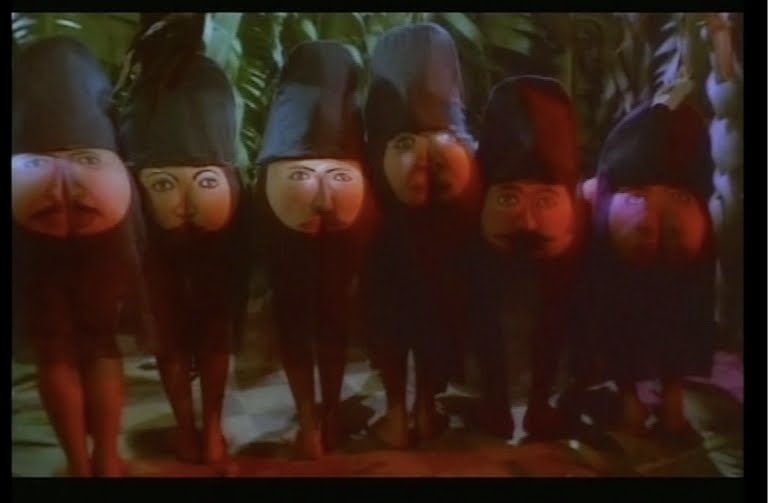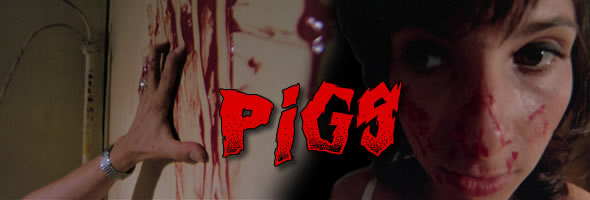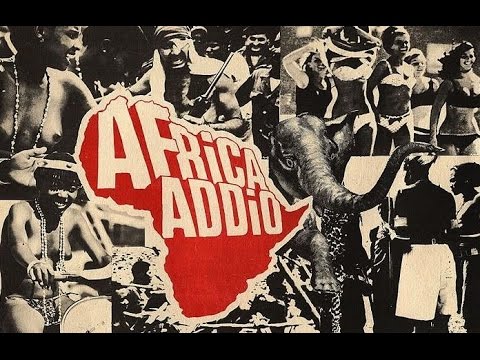Klaus Kinski was a crazy person. Sure, his Wikipedia page opens by stating that he was German actor known for his work with acclaimed director Werner Herzog, but, mostly, he was a maniac. Find any video of him on Youtube, and you will find this old bastard screaming his head off, at anyone, for anything. He believed in his prowess as an actor so greatly it entailed a degree of danger; any challenge to his skill or himself was met with anything from a fistfight to a gunshot. He was a bad man.
He was also a genius.
Kinski’s directorial debut (and last film before his death) is an indulgent, disgusting, and maddening autobiography under the guise of a biography. It is also, despite its many frustrations, masterful – cinema at its most unhinged and visual. Against the odds, it becomes a poignant statement on the life of its main actor, who may have been an evil lunatic, but who was also one of the greats.
Kinski Paganini is a mess. Kinski initially offered Herzog his script, but Herzog declined, calling it “un-filmable.” So Kinski decided to direct it himself. When his producers saw the final cut, they panicked and cut it to shreds. Kinski’s director’s cut was eventually released to the public on this DVD, but it looks terrible. The theatrical version – though an impossible and failed attempt to bring sanity to Kinski’s madness – looks gorgeous. Kinski’s version, however, was never restored, making much of the naturally lit film near-unwatchable. Despite its hellish transfer, tracking down this versione originale is worth it, if only to understand the full majesty of Kinski’s ambition.
And Kinski is nothing if not ambitious here. Ostensibly a biography of famed violinist Niccolo Paganini – a notoriously lecherous violinist who was so musically talented that he was accused of possession – Kinski Paganini instead acts as a prismatic dive into the writer/director/star’s broken mind. The film consists primarily of montages, intercutting Paganini playing his instrument with him having occasionally un-simulated sex with scores of women. In voiceover, “Paganini” acknowledges his ugliness before confessing that his virtuosic playing still sends women into orgiastic desire for him. Eventually, our “hero” begins to die, and his son becomes his only companion; but those things don’t occur until very late in the film, essentially acting as a sad epilogue. Most of the film plays out thusly: Paganini plays, women masturbate; Paganini plays, women fuck Paganini; Paganini walks ominously through a town square, his son cries; Paganini plays, women beg for his member; Paganini grows sick, he plays to grow well again; and so on.
There is only the hint of a story here, barely any arcs. Kinski is attempting to mirror the swirling memories of a dying man, and that non-narrative approach produces a fractured, impressionistic work that never lets up. Despite its pretentions, it finds a way to sneak staggering emotion into its heart. The climactic sequence, in particular, found me tearing up despite my rational annoyance at it. Kinski forced me to feel sadness for him (and his character), almost against my wishes.
Which leads me to a perhaps unsettling thought, which I will preface by saying that I do not condone any of Kinski’s behaviour, on or off film sets. Now, having said that …
Maybe Kinski was onto something.
Klaus Kinski clearly believed himself to be an artistic messiah. He believed himself worthy of all the pain he took and inflicted. In his mind, he was a great, and his belief in himself lead to persecution and glory in equal measure. It’s easy to see how Kinski saw himself in Paganini, and it’s surprising how much power he finds in the comparison.
That previous paragraph was hard to write. It makes me a little sick to give into the ego of a man who thinks it necessary to show himself engage in un-simulated sex in a film about his greatness – and that’s to say nothing of his personal life, and the alleged sexual abuse he engaged in with his children.
Again, I do not think that Klaus Kinski was a good man. I do not want to celebrate this film.
And yet, my rational protestations of praising Kinski’s cinematic id were unable to fight the waves of poignancy that arose from watching it. I wanted to dislike this, I wanted to hate it – but instead I found it strangely beautiful.
It’s tough be apolitical when consuming art. When everything is rife with systemic abuse, it’s hard to see Casey Affleck’s Oscar win as indicative of anything but a sexist system. It’s hard to believe that Woody Allen can say what he said at Cannes a couple years ago about his wife and still get actors to work with him. It’s hard to accept that Roman Polanski is still making films despite the fact that he is literally a runaway statutory rapist.
It’s a struggle, which itself seems strange. Morally, shouldn’t these men be put away, left to die away from the arts? Why, beyond the aforementioned systemic rot, is the separation between art and artist even a conversation?
I ask these questions, and I don’t have anything better to say than this: art is powerful. Art can transcend its origins and work magic on an audience, for better or worse. Sometimes horror creates beauty, and sometimes that beauty can be stronger than the horror ever was. In a perfect world, of course, we wouldn’t allow any of the awful stuff to happen in the first place. But it’s not a perfect world, it’s a broken one, and, if we fail to stop the horror, it makes sense to embrace any wonder that comes out of it.
Kinski Paganini is an ethically dubious proposition to endorse, but it understands the relationship between art and life in a way that I think is important to spread. I think promoting that message is a damn fine way to find something good in Kinski’s legacy, rather than just wallowing in the misery of the rest of him.
Remember hell, but look to heaven.









